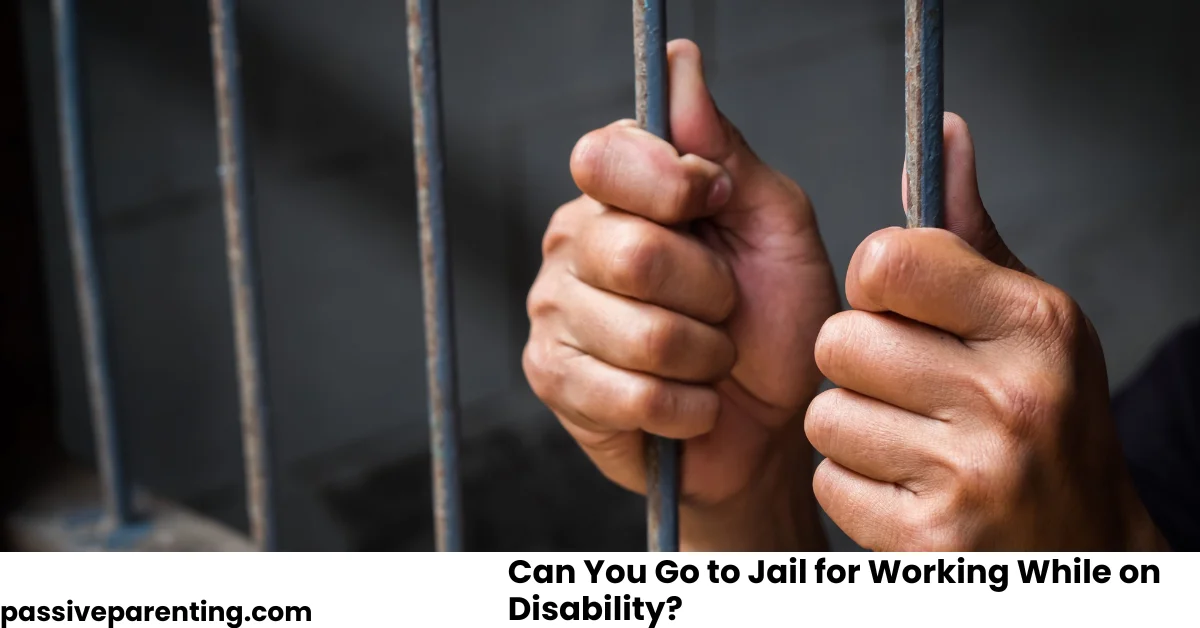Many people wonder: can you go to jail for working while on disability? The issue is complex because it depends on whether the work is reported, whether income limits are exceeded, and whether misrepresentation or fraud is involved. In this article, we break down what the law says, what penalties exist, and how someone can protect themselves while earning income and still receiving disability benefits.
Understanding Disability Benefits: SSDI vs. SSI
It’s essential to distinguish between Social Security Disability Insurance (SSDI) and Supplemental Security Income (SSI), because the rules and penalties differ.
- SSDI is based on your work history and contributions to Social Security taxes.
- SSI is a needs-based program; eligibility depends on income and resources.
With SSDI, there are rules about how much you can earn while still keeping benefits (e.g. Trial Work Period, Substantial Gainful Activity or SGA). SSI typically has stricter income and resource limits.
Working While on Disability: What the Rules Allow
Trial Work Period (SSDI)
Under SSDI, beneficiaries may test working for up to nine months, regardless of earnings, without losing benefits. This is called the Trial Work Period. During those months, you still need to report your work and any changes in your condition or income to the Social Security Administration (SSA). If earnings remain within allowable bounds and you are working a job you can handle despite your disability, SSDI often allows this trial.
Substantial Gainful Activity (SGA)
After the trial period, SSA uses SGA to decide whether your work is too much to still be considered disabled. If your earnings exceed the SGA threshold, your benefits can be stopped. You must always report your income and work changes to the SSA.
Reporting Requirements
Whether you receive SSDI or SSI, you are required to report any work, changes in income, work hours, or medical improvements. Failing to report is a serious issue.
What Constitutes Fraud: When Working Becomes a Crime
Intentional Non-Reporting or False Statements
Fraud occurs if someone knowingly and willfully makes false statements or conceals work/income in order to get benefits they’re not entitled to. Under Social Security Act § 1632, penalties exist for making material misrepresentations or failing to report events that affect eligibility.
Cases That Lead to Criminal Charges
Some examples of actions that may lead to criminal charges:
- Claiming disability while working full time and hiding it
- Using a false identity or employer information to conceal income
- Submitting false medical records in support of your claim
According to Tabak Attorneys, someone convicted of disability benefits fraud may face up to five years in prison and fines as high as $250,000.
Can You Actually Be Sent to Jail?
Short answer: Yes, but only under particular conditions involving fraud or intentional misconduct.
Overpayment vs. Fraud
If you earn too much but report honestly, the SSA may determine an overpayment and require repayment or reduce your benefits. That is civil, not criminal, and typically does not lead to jail.
But if you intentionally mislead the SSA, then you may be prosecuted for fraud, which can carry jail time. According to SSA rules, the penalty can involve fines and imprisonment of up to 5 years for false statements or concealment of facts.
Penalties Under SSA Regulations
- Under Code of Federal Regulations § 404.459 and § 416.1340, the SSA can impose penalties, suspend benefits, or require repayment if false statements or omissions are found.
- The SSA also considers your awareness of errors, severity, and context before imposing criminal penalties.
So, jail is reserved for clear, deliberate acts of fraud not for working per se.
Consequences of Misusing Benefits or Not Reporting
- Repayment / Overpayment recoupment: You may be required to pay back the payments you received while violating the rules.
- Criminal penalties: For intentional fraud, fines and jail (up to 5 years or more) are possible.
- Loss or suspension of benefits: Temporary or permanent suspension of SSDI or SSI benefits.
- Punitive disqualification periods: For SSI, repeated violations might result in 6, 12, or 24-month disqualification periods.
- Damage to reputation and legal record: A fraud conviction can affect future job applications and your criminal record.
How to Stay Within the Rules and Avoid Trouble
Be Transparent and Report Changes
Always report any work, income changes, or medical improvements to SSA promptly. Even mistakes can be corrected with less risk if you act in good faith.
Use SSA Programs to Work Safely
Programs like Ticket to Work let you test working while preserving benefits.
Understand Your Earnings Limits
Familiarize yourself with the current SGA and trial work period thresholds. Your state or classification (blind, disabled, etc.) may alter the limits.
Keep Documentation
Maintain pay stubs, income statements, work logs, and any SSA correspondence. Good records help if there’s ever a dispute.
Consult an Attorney if Unsure
If your situation is complicated (self-employment, fluctuations in income, medical recovery), a disability attorney or legal aid can advise you.
Common Myths & FAQs
Myth: Any work means jail.
Reality: Simply working does not mean jail. Jail only applies when fraud or intentional deceit is proven.
Question: Is overpayment the same as fraud?
No. Overpayment typically results from miscalculation or rule changes; fraud involves intentional wrongdoing.
Question: What if I forgot to report a part-time job?
Report it as soon as you realize the mistake. Cooperating limits risk of severe penalties.
Question: Does state disability work the same as federal SSA disability?
Rules vary by state. Some state disability programs have separate work rules and penalties. Always check your state’s laws.
Final Thoughts
Working while on disability is not a crime if you follow SSA rules and report your earnings. Jail time happens only when someone knowingly commits fraud, such as hiding work or giving false information. Stay transparent, keep records, and seek legal advice if needed to protect your benefits and peace of mind.




